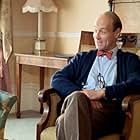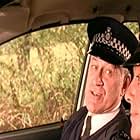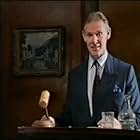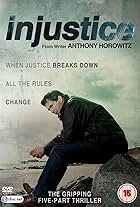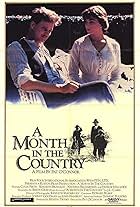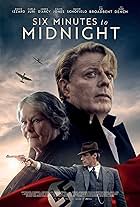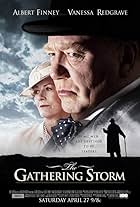Aggiungi una trama nella tua linguaBiopic about a real eccentric ultra-patriotic British army officer and war hero called Lt. Col. Alfred D. Wintle, who fought in both World Wars against both the enemy and his higher-ups with... Leggi tuttoBiopic about a real eccentric ultra-patriotic British army officer and war hero called Lt. Col. Alfred D. Wintle, who fought in both World Wars against both the enemy and his higher-ups with the same passion.Biopic about a real eccentric ultra-patriotic British army officer and war hero called Lt. Col. Alfred D. Wintle, who fought in both World Wars against both the enemy and his higher-ups with the same passion.
- Nominato ai 1 BAFTA Award
- 1 candidatura in totale
Trama
Lo sapevi?
- QuizThe picture the lead character of this film is reversed...a sam browne is worn with the cross strap over your right shoulder and his medals ribbons are on the wrong side...hence im guessing that the picture has been reversed.
- ConnessioniSpin-off from Queen of the East (1995)
Recensione in evidenza
I was astonished to learn that this drama is a true account! I found a short account of this wonderful eccentric's life...
"One of the more bizarre characters to emerge from the Military Academy in Woolwich was Lt Col Alfred Daniel Wintle of the First Royal Dragoons.
Although he was born in Russia, educated in France and Germany and lived, for a while in Holland, Alfred was a British citizen - and an ardent one at that.
He once wrote to a friend in all seriousness: "I get down on my knees every night and thank god for making me English."
And he meant it. His father having been a diplomat for the British government, installed a "proper sense of English morality" in him from birth, and by the time Alfred entered his teens, he was known as the Greatest Chauvinist on Earth.
Nothing English was bad, everything else was inferior. When he was invited to attend the German Academy at Heidelberg, he declined with a snort.
"Attend a German school sir? I would rather cut my hands off and blind myself in one eye. Only an English school is good enough for me."
But eventually he was persuaded by his family to attend schools in France and Germany before electing to return to England and enrol in the Military Academy at Woolwich.
He joined the cavalry with the intention of staying mounted as much as possible.
"Time spent dismounted can never be regained," he told readers in his autobiography.
On his arrival, he regaled himself with all the attire of a "typical" Englishman, complete with monocle and an umbrella because "no true gentleman would ever leave home without one", which he stored in a special pouch in his saddle.
Wearing the monocle, he spurned attaching it to a chain, preferring to rely on his well-developed squint to keep it firmly in place.
The umbrella, was never opened ("no true gentleman would ever unfurl one"), except to insert a curt note, which read: "This umbrella was stolen from Col A D Wintle.
However, there is one thing about him that was never in doubt, during the First World War he marked his campaign with extraordinary acts of bravery coupled with a tenacious frustration over the misjudgments of his superior officers.
On 19 June 1919, he wrote in his diary: "Great War peace signed at last."
On 20 June 1919, he added: "I declare private war on Germany."
He raged against the authorities for refusing to believe that another war with Germany was "as inevitable as a glass of port after dinner" and spent the next 20 years, bombarding the War Office with plans to "fight the Hun".
When, in September 1939, World War Two began he tried everything to persuade his superiors to allow him to go to France.
When they refused he planned to resign his commission and form his own army "to take the war to the Hun".
None of his schemes worked and after being arrested for trying to steal a military aircraft to fly to France himself - despite not being trained how to fly - he finally was thrown into the Tower of London.
This came about after he marched into the Air Ministry, pulled a gun on an official demanding to be sent to France and when the official turned him down, he ranted against the Government and the official, accusing them of deliberately hampering the war effort and emptied his gun into the official's desk.
In the Tower, while awaiting his court-martial, he lived in style, with a Grenadier Guardsman as his personal servant which was obliged to provide a formal dinner every evening and high tea for visitors in the afternoon.
When his hearing finally was held, the government - embarrassed by his accusations - dropped all charges, bar one and he was formally reprimanded and sent abroad - but not to France.
He then formally resigned his commission and joined the Secret Service, where his first posting was to France where, in 1941, he was arrested as a spy.
He escaped, was betrayed - and recaptured - and finally went on a hunger strike for two weeks to protest at the "slovenly appearance of the guards who are not fit to guard an English officer!"
He held daily inspections of his guards and berated them and his French jailors for their poor deportment and treachery in supporting the Vichy regime.
After the War, he left Woolwich and retired to Wrotham with his wife and settled down to write novels and formed a campaign to maintain the "correct English way of life."
His deportment was such that, when once boarding a train at Victoria with a first class ticket, only to find that all the first class seats were taken, he marched to the front of the train and occupied the driver's seat until another first-class coach was added to the train.
He wrote later, "I had to teach British Railways a lesson" and it seemed that they did for another first-class coach was found, added to the train and Alfred Wintle became a national hero.
In 1948, he embarked on a decade-long battle to fight for the small fortune left by his cousin Kitty to, in his view, the wrong person.
She had left the bulk of her fortune to her solicitor, a man named Frederick Nye.
In an attempt to get him into court, Wintle lured him to a flat in Hove, debagged him and sent the photographs to the newspapers.
The plot backfired, Alfred was jailed for six months in Wormwood Scrubs and then, on his release and acting as his own lawyer, took the case to the House of Lords.
After six days of hearing evidence, the Lords came down firmly on Alfred's side - the first time in history that a layman, without legal support, had won a case in the highest court in the land.
In 1959, an episode of This is Your Life was devoted to him with Maurice Molia, the head of the French garrison in Vichy France who was responsible for guarding him appearing.
Molia confirmed that "entirely because of Wintle's dauntless determination to maintain English standards and his constant challenge to our authority," the entire Garrison of 280 men had gone over to the Resistance after Wintle was transferred to another prison.
In 1966, Wintle died and the Times devoted an entire leader column to him, praising his "impractical and uncomfortable" eccentricity as a mark of character and individuality".
"One of the more bizarre characters to emerge from the Military Academy in Woolwich was Lt Col Alfred Daniel Wintle of the First Royal Dragoons.
Although he was born in Russia, educated in France and Germany and lived, for a while in Holland, Alfred was a British citizen - and an ardent one at that.
He once wrote to a friend in all seriousness: "I get down on my knees every night and thank god for making me English."
And he meant it. His father having been a diplomat for the British government, installed a "proper sense of English morality" in him from birth, and by the time Alfred entered his teens, he was known as the Greatest Chauvinist on Earth.
Nothing English was bad, everything else was inferior. When he was invited to attend the German Academy at Heidelberg, he declined with a snort.
"Attend a German school sir? I would rather cut my hands off and blind myself in one eye. Only an English school is good enough for me."
But eventually he was persuaded by his family to attend schools in France and Germany before electing to return to England and enrol in the Military Academy at Woolwich.
He joined the cavalry with the intention of staying mounted as much as possible.
"Time spent dismounted can never be regained," he told readers in his autobiography.
On his arrival, he regaled himself with all the attire of a "typical" Englishman, complete with monocle and an umbrella because "no true gentleman would ever leave home without one", which he stored in a special pouch in his saddle.
Wearing the monocle, he spurned attaching it to a chain, preferring to rely on his well-developed squint to keep it firmly in place.
The umbrella, was never opened ("no true gentleman would ever unfurl one"), except to insert a curt note, which read: "This umbrella was stolen from Col A D Wintle.
However, there is one thing about him that was never in doubt, during the First World War he marked his campaign with extraordinary acts of bravery coupled with a tenacious frustration over the misjudgments of his superior officers.
On 19 June 1919, he wrote in his diary: "Great War peace signed at last."
On 20 June 1919, he added: "I declare private war on Germany."
He raged against the authorities for refusing to believe that another war with Germany was "as inevitable as a glass of port after dinner" and spent the next 20 years, bombarding the War Office with plans to "fight the Hun".
When, in September 1939, World War Two began he tried everything to persuade his superiors to allow him to go to France.
When they refused he planned to resign his commission and form his own army "to take the war to the Hun".
None of his schemes worked and after being arrested for trying to steal a military aircraft to fly to France himself - despite not being trained how to fly - he finally was thrown into the Tower of London.
This came about after he marched into the Air Ministry, pulled a gun on an official demanding to be sent to France and when the official turned him down, he ranted against the Government and the official, accusing them of deliberately hampering the war effort and emptied his gun into the official's desk.
In the Tower, while awaiting his court-martial, he lived in style, with a Grenadier Guardsman as his personal servant which was obliged to provide a formal dinner every evening and high tea for visitors in the afternoon.
When his hearing finally was held, the government - embarrassed by his accusations - dropped all charges, bar one and he was formally reprimanded and sent abroad - but not to France.
He then formally resigned his commission and joined the Secret Service, where his first posting was to France where, in 1941, he was arrested as a spy.
He escaped, was betrayed - and recaptured - and finally went on a hunger strike for two weeks to protest at the "slovenly appearance of the guards who are not fit to guard an English officer!"
He held daily inspections of his guards and berated them and his French jailors for their poor deportment and treachery in supporting the Vichy regime.
After the War, he left Woolwich and retired to Wrotham with his wife and settled down to write novels and formed a campaign to maintain the "correct English way of life."
His deportment was such that, when once boarding a train at Victoria with a first class ticket, only to find that all the first class seats were taken, he marched to the front of the train and occupied the driver's seat until another first-class coach was added to the train.
He wrote later, "I had to teach British Railways a lesson" and it seemed that they did for another first-class coach was found, added to the train and Alfred Wintle became a national hero.
In 1948, he embarked on a decade-long battle to fight for the small fortune left by his cousin Kitty to, in his view, the wrong person.
She had left the bulk of her fortune to her solicitor, a man named Frederick Nye.
In an attempt to get him into court, Wintle lured him to a flat in Hove, debagged him and sent the photographs to the newspapers.
The plot backfired, Alfred was jailed for six months in Wormwood Scrubs and then, on his release and acting as his own lawyer, took the case to the House of Lords.
After six days of hearing evidence, the Lords came down firmly on Alfred's side - the first time in history that a layman, without legal support, had won a case in the highest court in the land.
In 1959, an episode of This is Your Life was devoted to him with Maurice Molia, the head of the French garrison in Vichy France who was responsible for guarding him appearing.
Molia confirmed that "entirely because of Wintle's dauntless determination to maintain English standards and his constant challenge to our authority," the entire Garrison of 280 men had gone over to the Resistance after Wintle was transferred to another prison.
In 1966, Wintle died and the Times devoted an entire leader column to him, praising his "impractical and uncomfortable" eccentricity as a mark of character and individuality".
I più visti
Accedi per valutare e creare un elenco di titoli salvati per ottenere consigli personalizzati
Dettagli
- Data di uscita
- Paese di origine
- Lingua
- Celebre anche come
- The Heroes and Villains: Last Englishman
- Aziende produttrici
- Vedi altri crediti dell’azienda su IMDbPro
Contribuisci a questa pagina
Suggerisci una modifica o aggiungi i contenuti mancanti









